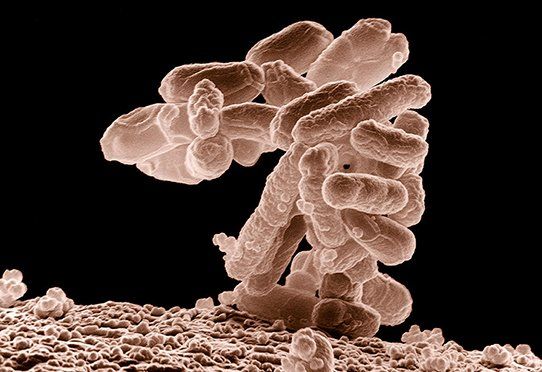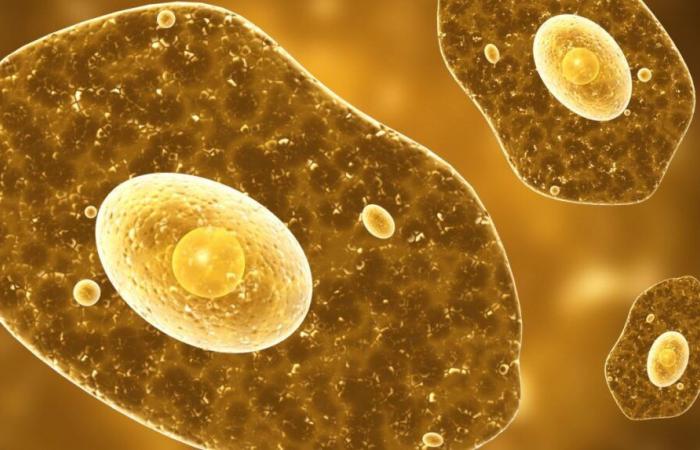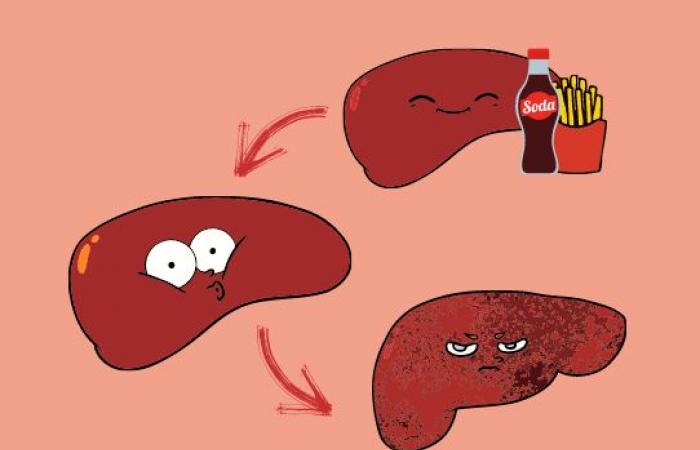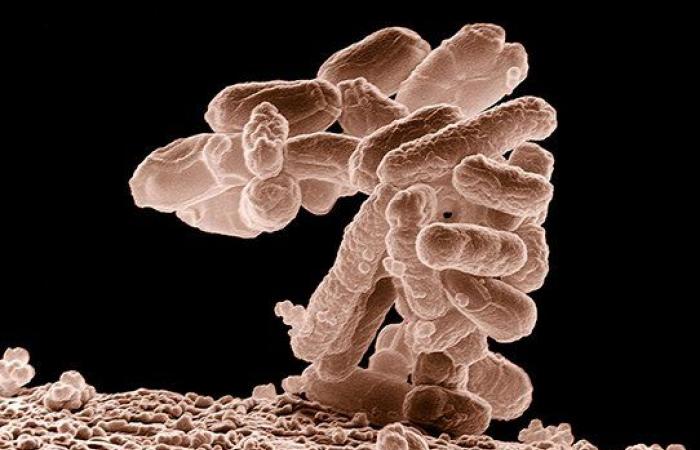Amoebae are single-celled microorganisms considered undesirable parasites. However, their presence in the intestines could protect us from fatty liver disease, the famous “fatty liver disease”. This is indicated by the latest work by a team from the Inflammation Research Center in Paris, carried out in mice. Therefore, could the virtual disappearance of amoebae in the intestines of Westerners play a role in the explosion in the number of people affected by this liver disease?
Adopting a diet rich in fat and sugar, and more broadly a Western lifestyle, is associated with an increased risk of metabolic syndrome. This includes overweight or obesity, insulin resistance which leads to diabetes, dyslipidemia or even hepatic steatosis, a disease which corresponds to an accumulation of fat in the liver, associated with inflammation of the liver. organ. These are all disorders that contribute to the onset of cardiovascular disease and increase the risk of death. But if numerous studies describe the association between the Western diet and metabolic syndrome, other factors could also contribute to the risk of developing this syndrome. Jean-Pierre Hugot, researcher within a team Inserm from the Inflammation Research Center in Paris, was interested in the potential role of amoebae.
Endangered
These single-celled organisms that colonized human intestines for millennia have virtually disappeared among people who adopted a Western lifestyle. “ The composition of the intestinal microbiota of humans is very varied, with bacteria, viruses, fungi, but also protozoa which are unicellular organisms with a nucleus, such as amoebae. The latter are still found in significant quantities in the intestines of individuals from rural populations, particularly in Africa. But they have become extremely rare for us. This could be explained by changes in hygiene, particularly the treatment of water and food products, since amoebae are mainly acquired through the consumption of contaminated products, explains the researcher. This loss does not move many people because amoebas have a bad reputation, some being responsible for diarrhea. However, many of them are harmless. And in terms of evolution, if amoebas have long colonized our intestines it is probably because there is a certain symbiosis between them and us. So, perhaps with their disappearance we lose an advantage? », asks Jean-Pierre Hugot. These questions led his team to test the hypothesis of a beneficial effect of intestinal colonization by amoebae. Using a mouse model, scientists focused on the effect of this colonization on the occurrence of metabolic syndrome.
A causality to be explained
The researchers used mice whose gut microbiota was initially devoid of amoebae. In half of the animals, they inoculated Entamoeba of the mousean amoeba found in the intestines of mice that live in the wild. All the animals were then put on a Western-style high-fat diet, then the researchers monitored their health and measured several biological parameters which provided information on the composition of their intestinal flora and their cardiovascular health.
The team thus demonstrated that the presence of amoebae modifies the composition of the intestinal microbiota: a result which is not surprising since the protozoa feed on bacteria, fibers and food residues. But in the context studied, this modification is associated with a beneficial effect: “ Amoebae rebalance the intestinal flora altered by the high-fat diet », notes Jean-Pierre Hugot. And although nothing significant regarding the development of overweight, dyslipidemia or insulin resistance could be observed during this work, the team demonstrated a reduction in the risk of steatosis. hepatic associated with the presence of amoebae. “ This association could be explained by better metabolic control due to the good health of the intestinal microbiota, or by a more direct action of these microorganisms. They in fact produce a molecule called cAMP which seems beneficial for the body. This study therefore opens doors to understand the effect of amoebae on the organism of their hosts and to perhaps discover new mechanisms that would protect us from fatty liver disease. », concludes the researcher. A perspective reinforced by a recent epidemiological study who reached similar conclusions when looking at the effect of other protozoa (Bhuman lastocyst) in humans.
Jean-Pierre Hugot is a researcher at the Inflammation Research Center (unit 1149 Inserm/Université Paris-Cité), in Paris.
Source : M.Roy et coll. Entamoeba muris mitigates metabolic consequences of high-fat-diet in mice. Gut MicrobesOctober 13, 2024; DOI: 10.1080/19490976.2024.2409210
Author: A.R.
Also read









